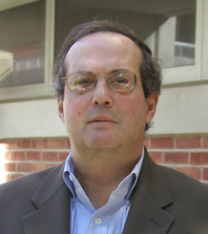
- This event has passed.
Colloquium Series: Robert Weiss, University of Connecticut
Tuesday, April 25, 2023 @ 4:00 pm - 5:00 pm
 Join us for our Colloquium Series. Dr. Robert Weiss, a professor at the University of Connecticut will be joining us to present his research on “High Performance Nanostructured Hydrogels” on Tuesday, April 25th.
Join us for our Colloquium Series. Dr. Robert Weiss, a professor at the University of Connecticut will be joining us to present his research on “High Performance Nanostructured Hydrogels” on Tuesday, April 25th.
Research Synopsis
Hydrogels are soft 3-D networks formed from hydrated crosslinked water-soluble polymers. Because of their high water-absorbance, softness, flexibility and biocompatibility, hydrogels have applications in biomedical, agricultural, environmental, food and personal care technologies. The main barriers for increased commercialization are their poor strength and fracture toughness and high production costs. Supramolecular hydrogels (SMHs) that use supramolecular bonds for forming the swollen polymer network have attracted considerable contemporary interest, because of the reversibility of the crosslinks, improved processability, enhanced toughness and self-healing properties. SMHs have been developed from a variety of non-covalent chemistries, including hydrogen bonds, ionic bonds, ligand–receptor complexation and hydrophobic interactions. Hydrophobically-modified hydrogels have been primarily derived from hydrocarbon-containing monomers.
This talk will describe fluorocarbon-based hydrophobically-modified SMHs that have a unique reversible nano-structure derived from fluorine-based hydrophobic interactions. These materials exhibit extraordinary strength and fracture toughness that are a consequence of a morphology consisting of ~2-6 nm-diameter core-shell nanodomains of the fluorocarbon constituent dispersed in a continuous phase of water-swollen hydrophilic polymer. Unlike conventional hydrogels and double network hydrogels, the microstructure can be sufficiently weakened by temperature, stress or added solvent, so that the materials are processable by melt flow in the dry or water-swollen state, as well as injectable as a solution. The reversibility of the supramolecular network allows the material to flow under an external stress, yet the exceptional properties of the hydrogel can be recovered after the deforming stress is removed. The SMHs can also be electrospun to generate interconnected porous hydrogels that may have applications in tissue engineering. The hydrophobic phase concentration can be varied to provide controllable drug-release capability, and hybrid SMHs, with covalent and physical bonds, exhibit shape-memory behavior. Most surprising is that these SMH’s exhibit novel anti-freezing behavior that will be emphasized in this talk. Depending on the concentration and choice of the hydrophobic species, anti-freeze SMHs containing 30 – 40 wt% water prevent ice formation to temperature as low as 128 K. The suppression of ice formation is a result of confinement effects similar to the mechanism used by anti-freeze proteins. The ability of these hydrogels to inhibit ice formation in soft matter with relatively high water content is unprecedented and provides a facile pathway for controlling water crystallization in a variety of common, but important technologies.

